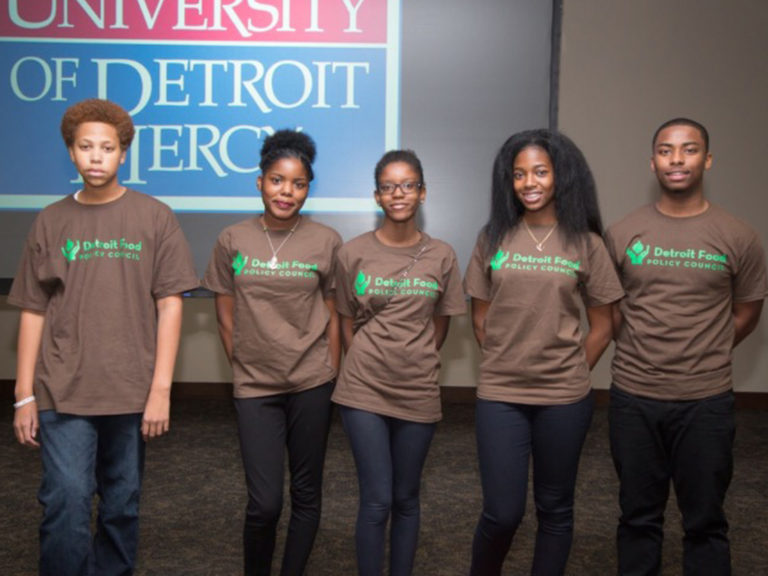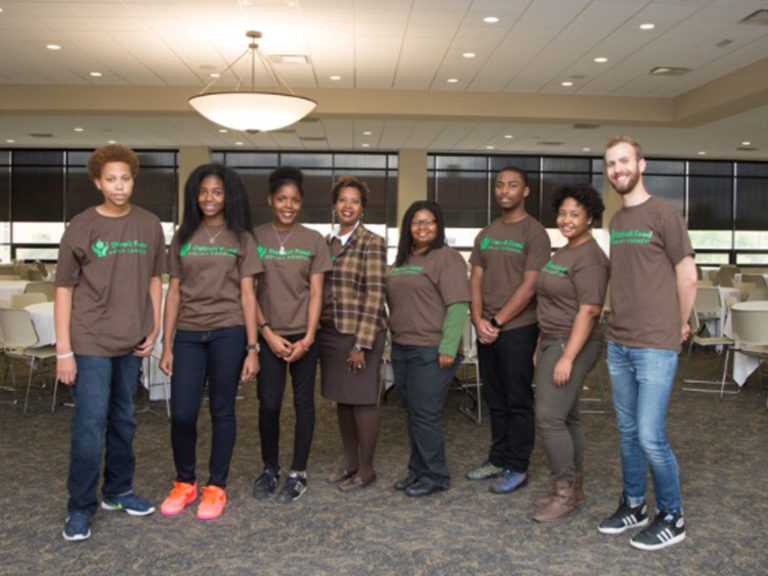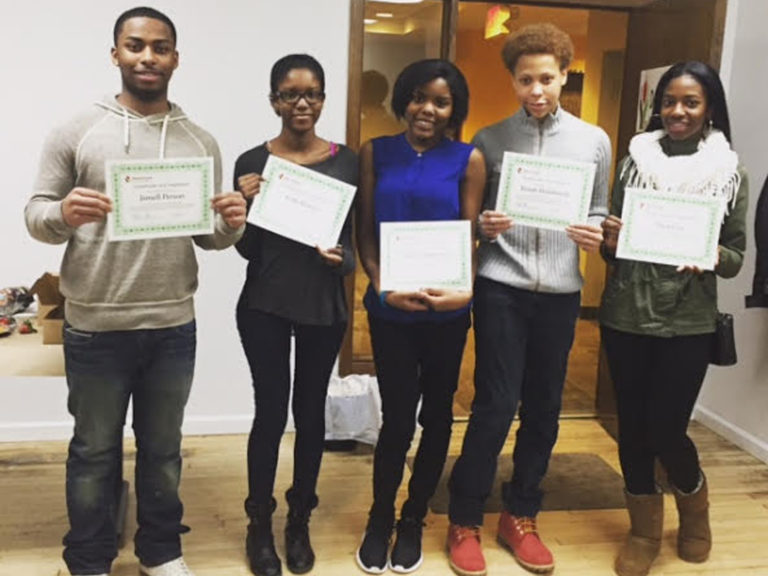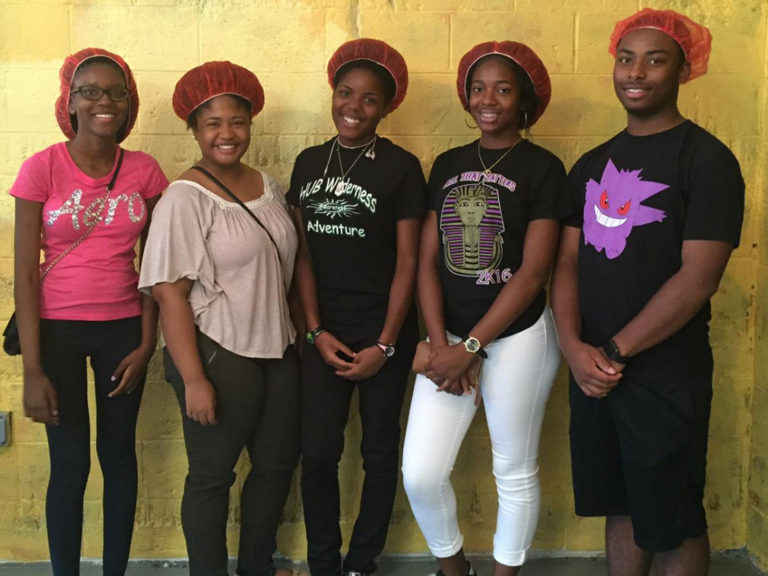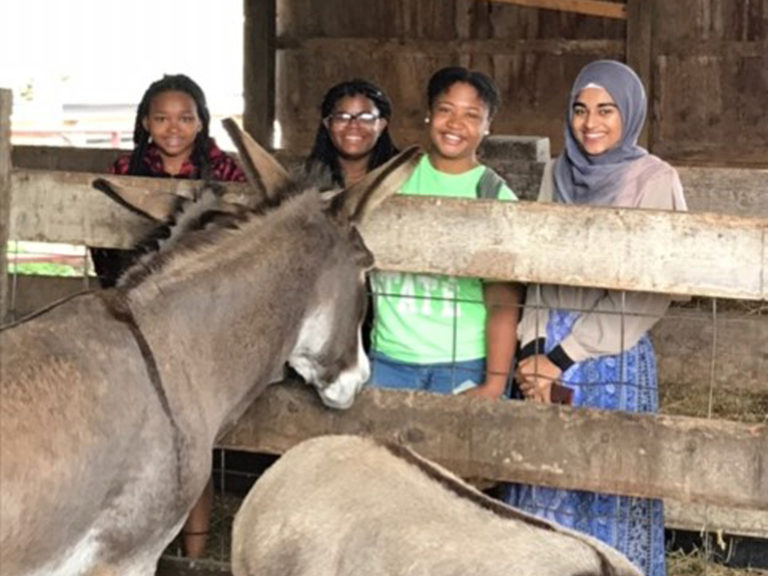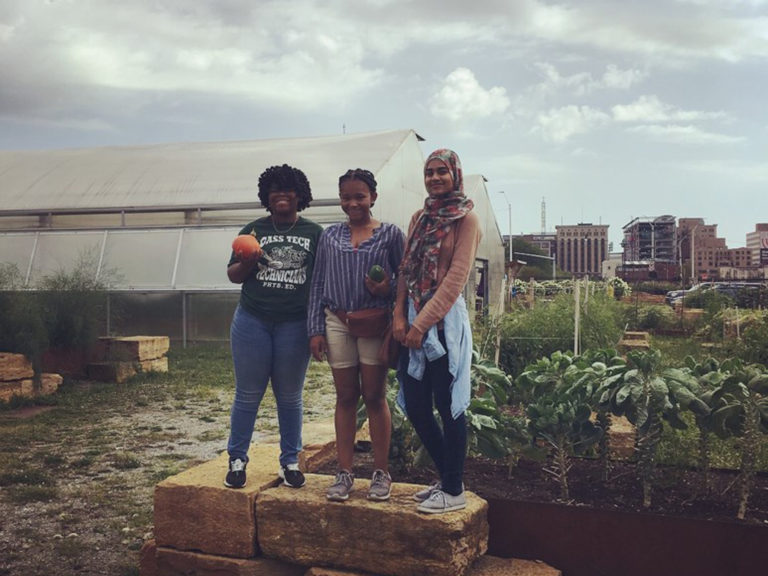Committees
The Detroit Food Policy Council convenes committees to carry out the objectives outlined in our Strategic Plan. For more information on our committee visit the sections below. The Research and Policy Committee, Education and Engagement Committee and Youth Programs Committee are open to participation from community members.
Executive Committee
Nominating Committee
Fund Development Committee
Executive Committee
Nominating Committee
Fund Development Committee
Detroit Grocery Coalition
-
About DetroitGreat Grocer
-
Detroit GreatGrocer Project
-
Great GrocerStore Ratings
-
How We RateGrocery Stores
-
GGP CommunityEngagement
-
Great GrocerRecipes
The Grocery Store Coalition (DGC) is a collaborative of organizations working to improve and promote the grocery landscape within Detroit. The DGC is led by the Detroit Food Policy Council and facilitates the Great Grocer Project (GGP) in collaboration with the Wayne State University Center for Health and Community Impact. The purpose of the GGP is to advance health equity and economic vitality within the City of Detroit by increasing capacity of Detroit grocers to provide equitable access to healthy food, and to foster collaborations between communities and grocery store operators.
The Detroit Grocery Coalition is comprised of the following members: Detroit Food Policy Council, Detroit Food Map Initiative, Wayne State University Center for Health and Community Impact, Detroit Health Department, Detroit Economic Growth Corporation, Eastern Market Partnership, Fair Food Network, National Kidney Foundation of Michigan, and the Midwest Independent Retailers Association.
Coalition Members:
Our community partners include community organizations from across Detroit: Matrix Center, Eastside Community Network, Church of the Messiah CDC, Detroit Black Community Food Security Network, CHASS, Joy Southfield CDC, Brightmoor Artisans Collective, and People For Palmer Park.
The Great Grocer Project consists of three primary components:
-
Healthy Grocer Promotion:Provide a rating system for grocery stores that creates a common standard to evaluate all stores, and allows us to compare stores across the city based on this standard. The DGC will also promote stores that are meeting the GGP standard.
-
Community Engagement:Develop a toolkit, based on the Adopt A Shop model, that improves neighborhood involvement in store promotion and operations. The DGC works in collaboration with our partner community-based organizations to develop and implement the toolkit.
-
Healthy Food Marketing:Assist stores that want to improve their retail food environments by providing marketing and promotion of healthy foods within grocery stores and developing other incentives that support local stores.
Community impact of the Great Grocery Project:
- Increased career opportunities for local residents including youth
- Promote economic mobility of local grocers
- Improve procurement of healthy, quality, local produce
- Increase consumer relationships with grocers
- Increase consumption of healthy foods
- Build local capacity to work with grocers
The Great Grocer Project
GGP 2022 Scorecard
Detroit Grocery stores are awarded one carrot for each of the categories:
- Availability
- Affordability
- Quality
- Customer Service & Safety
- Community Involvement
Great Grocer store ratings are based on various validated tools and measures assessed bi-annually in each store. For the availability, affordability, and quality scores we determined cutoff scores from store measures on the Nutritional Environment Measures Survey (NEMS). NEMS is a validated survey of the grocery food environment that has been measured in Detroit grocers over the last decade and many other stores nationally since 2004.
For the customer service and safety score we combined responses from surveys of customers within Detroit grocery stores with the inspection records from the Michigan Department of Agriculture and Rural Development (MDARD). Stores met this category based on positive customer responses and inspection records from the MDARD report.
For the community service category stores’ participation in community and nutrition programs such as Double Up Food Bucks, Green Grocer, or donations to local community groups was determined through customer surveys and interview responses, interview responses from store managers, and lists of participants in programs of DGC partners.
GGP Community Engagement Fellowship
The Great Grocer Community Engagement Toolkit is a community training initiative that builds capacity within local community organizations to work with grocers, and increase the availability of high-quality foods within Detroit grocers. Fellows receive training on the Great Grocer strategy, and work with one independent grocery store to implement evaluation and community engagement tools. This year our first cohort of Community Engagement Fellows joined us from Church of the Messiah and Joy Southfield Community Development Corporation.
Our Fellows
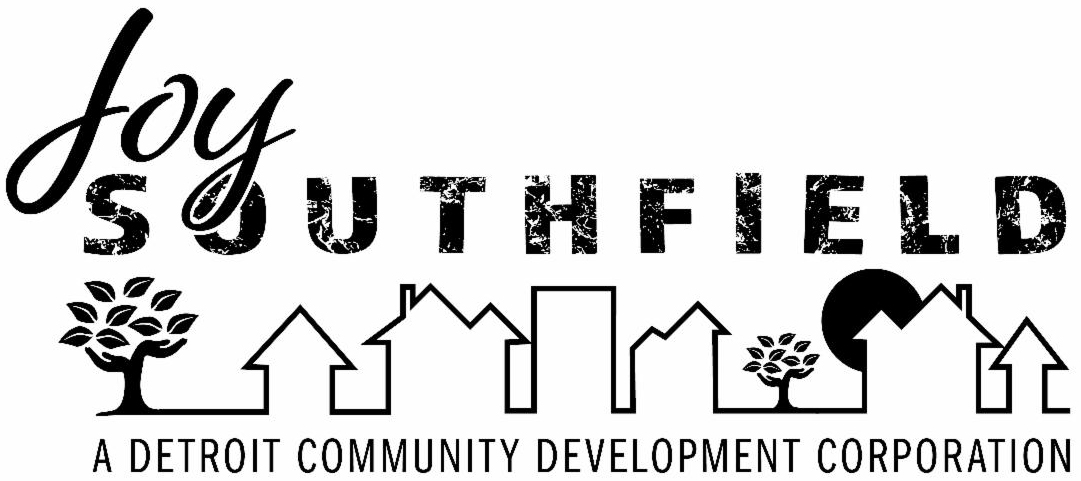

Patricia Blake-Smith, Joy Southfield CDC
For over twenty years, Tricia Blake-Smith has been passionate about health and wellness initiatives that advance and promote the health and quality of life of Michigan residents especially communities of color. This passion has been rewarding to her being able to lead, teach and influence others to commit to a healthier lifestyle. She has been involved in several large-scale health projects on the local, state and regional level that supported and promoted healthy lifestyles which increased physical activity, healthy eating, and smoke-free lifestyles, while reducing health disparities and preventing and controlling other chronic conditions risk factors.
Mrs. Blake-Smith is currently the Director of Community Health for Joy Southfield CDC. In this role, she works collaboratively with many organizations in the Cody Rouge community to provide year-round continuous programs that make a real difference in people’s lives through awareness, education and obtaining life skills. Working as the Director of Community Health is intrinsically rewarding for Tricia as she is constantly in the thick of discussions and creating initiatives to make the world a healthier, safer place to live. Currently, she is a Great Grocer Community Engagement Fellow who works with local Detroit independent grocers to build relationship with and improve their capacity to offer high-quality, nutrient-rich foods.
Mrs. Blake-Smith has a Master of Science in Public Health from Meharry Medical College with a concentration in Public Health Administration and Bachelor of Science in Health Care Administration from Tennessee State University. She has taken on many leadership roles in the healthcare field but the one role that remains constant is being a continuous health advocate and champion for the citizens of the state of Michigan. She has received the Community Activist award, “Mosquito Award,” from Tobacco Free Michigan for her commitment and leadership in advocating for Tobacco Free Environments. Tricia was a Leadership Fellow in the Mid-America Regional Public Health Leadership Institute (MARPHLI) at University of Illinois. She has published and presented scientific and technical papers at the American Public Health Association Annual Meeting and peer reviewed journal. Mrs. Blake-Smith is actively involved in her community, where she serves as a Heart Health chair and active member of Alpha Kappa Alpha Sorority, Incorporated, Student Initiatives Chair in TSUNAA Detroit Chapter, Nominating Chair on Service Builders Foundation Incorporated, DPP Lifestyle Coach for National Kidney Foundation of Michigan and Sustainer member of Junior League of Birmingham, MI.

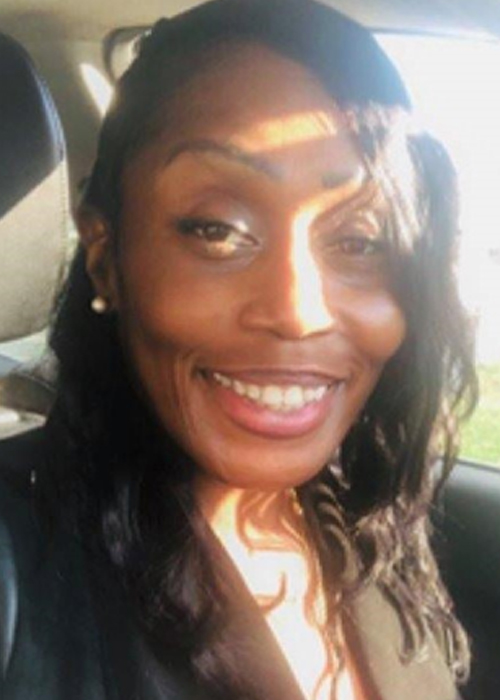
Tamika Hamilton, Church of the Messiah
Tamika Hamilton has serves as the Board of Directors for Church of the Messiah and its’ social service arm, Boulevard Harambee since 2009. Boulevard stands for B=Building, L=Leaders, for V=Village, D=Development and Harambee means “all pull together” in Swahili. This 501c 3 is housed in the church and has numerous outreach programs that help to create and cultivate young African American entrepreneurs, artists, and businesses owners. In conjunction with cultivating youth, BLVD Harambee also serves as the community liaison that ensures our community, Islandview (located on the lower Eastside of Detroit) is afforded the necessities for a productive life. Some of the issues and needs being met by BLVD Harambe include affordable housing, access to good qualities of food, mentorship through music and sports, job placement and employment for returning citizens.
BLVD Harambee has had a far-reaching impact on the lower eastside of the city, we are helping to change the world.
About
The Grocery Store Coalition (DGC) is a collaborative of organizations working to improve and promote the grocery landscape within Detroit. The DGC is led by the Detroit Food Policy Council and facilitates the Great Grocer Project (GGP) in collaboration with the Wayne State University Center for Health and Community Impact. The purpose of the GGP is to advance health equity and economic vitality within the City of Detroit by increasing capacity of Detroit grocers to provide equitable access to healthy food, and to foster collaborations between communities and grocery store operators.
The Detroit Grocery Coalition is comprised of the following members: Detroit Food Policy Council, Detroit Food Map Initiative, Wayne State University Center for Health and Community Impact, Detroit Health Department, Detroit Economic Growth Corporation, Eastern Market Partnership, Fair Food Network, National Kidney Foundation of Michigan, and the Midwest Independent Retailers Association.
Coalition Members:
Our community partners include community organizations from across Detroit: Matrix Center, Eastside Community Network, Church of the Messiah CDC, Detroit Black Community Food Security Network, CHASS, Joy Southfield CDC, Brightmoor Artisans Collective, and People For Palmer Park.
Detroit Great Grocer Project
The Great Grocer Project consists of three primary components:
Healthy Grocer Promotion:
Provide a rating system for grocery stores that creates a common standard to evaluate all stores, and allows us to compare stores across the city based on this standard. The DGC will also promote stores that are meeting the GGP standard.
Community Engagement:
Develop a toolkit, based on the Adopt A Shop model, that improves neighborhood involvement in store promotion and operations. The DGC works in collaboration with our partner community-based organizations to develop and implement the toolkit.
Healthy Food Marketing:
Assist stores that want to improve their retail food environments by providing marketing and promotion of healthy foods within grocery stores and developing other incentives that support local stores.
Community impact of the Great Grocery Project:
Increased career opportunities for local residents including youth
Promote economic mobility of local grocers
Improve procurement of healthy, quality, local produce
Increase consumer relationships with grocers
Increase consumption of healthy foods
Build local capacity to work with grocers

Great Grocer Store Ratings
GGP 2022 Scorecard
Detroit Grocery stores are awarded one carrot for each of the categories:
• Availability •
• Affordability •
• Quality •
• Customer Service & Safety •
• Community Involvement •
How We Rate Grocery Stores
Great Grocer store ratings are based on various validated tools and measures assessed bi-annually in each store. For the availability, affordability, and quality scores we determined cutoff scores from store measures on the Nutritional Environment Measures Survey (NEMS). NEMS is a validated survey of the grocery food environment that has been measured in Detroit grocers over the last decade and many other stores nationally since 2004.
For the customer service and safety score we combined responses from surveys of customers within Detroit grocery stores with the inspection records from the Michigan Department of Agriculture and Rural Development (MDARD). Stores met this category based on positive customer responses and inspection records from the MDARD report.
For the community service category stores’ participation in community and nutrition programs such as Double Up Food Bucks, Green Grocer, or donations to local community groups was determined through customer surveys and interview responses, interview responses from store managers, and lists of participants in programs of DGC partners.

GGP Community Engagement
GGP Community Engagement Fellowship
The Great Grocer Community Engagement Toolkit is a community training initiative that builds capacity within local community organizations to work with grocers, and increase the availability of high-quality foods within Detroit grocers. Fellows receive training on the Great Grocer strategy, and work with one independent grocery store to implement evaluation and community engagement tools. This year our first cohort of Community Engagement Fellows joined us from Church of the Messiah and Joy Southfield Community Development Corporation.
Our Fellows

Patricia Blake-Smith
Joy Southfield CDC

For over twenty years, Tricia Blake-Smith has been passionate about health and wellness initiatives that advance and promote the health and quality of life of Michigan residents especially communities of color. This passion has been rewarding to her being able to lead, teach and influence others to commit to a healthier lifestyle. She has been involved in several large-scale health projects on the local, state and regional level that supported and promoted healthy lifestyles which increased physical activity, healthy eating, and smoke-free lifestyles, while reducing health disparities and preventing and controlling other chronic conditions risk factors.
Mrs. Blake-Smith is currently the Director of Community Health for Joy Southfield CDC. In this role, she works collaboratively with many organizations in the Cody Rouge community to provide year-round continuous programs that make a real difference in people’s lives through awareness, education and obtaining life skills. Working as the Director of Community Health is intrinsically rewarding for Tricia as she is constantly in the thick of discussions and creating initiatives to make the world a healthier, safer place to live. Currently, she is a Great Grocer Community Engagement Fellow who works with local Detroit independent grocers to build relationship with and improve their capacity to offer high-quality, nutrient-rich foods.
Mrs. Blake-Smith has a Master of Science in Public Health from Meharry Medical College with a concentration in Public Health Administration and Bachelor of Science in Health Care Administration from Tennessee State University. She has taken on many leadership roles in the healthcare field but the one role that remains constant is being a continuous health advocate and champion for the citizens of the state of Michigan. She has received the Community Activist award, “Mosquito Award,” from Tobacco Free Michigan for her commitment and leadership in advocating for Tobacco Free Environments. Tricia was a Leadership Fellow in the Mid-America Regional Public Health Leadership Institute (MARPHLI) at University of Illinois. She has published and presented scientific and technical papers at the American Public Health Association Annual Meeting and peer reviewed journal. Mrs. Blake-Smith is actively involved in her community, where she serves as a Heart Health chair and active member of Alpha Kappa Alpha Sorority, Incorporated, Student Initiatives Chair in TSUNAA Detroit Chapter, Nominating Chair on Service Builders Foundation Incorporated, DPP Lifestyle Coach for National Kidney Foundation of Michigan and Sustainer member of Junior League of Birmingham, MI.

Tamika Hamilton,
Church of the Messiah

Tamika Hamilton has serves as the Board of Directors for Church of the Messiah and its’ social service arm, Boulevard Harambee since 2009. Boulevard stands for B=Building, L=Leaders, for V=Village, D=Development and Harambee means “all pull together” in Swahili. This 501c 3 is housed in the church and has numerous outreach programs that help to create and cultivate young African American entrepreneurs, artists, and businesses owners. In conjunction with cultivating youth, BLVD Harambee also serves as the community liaison that ensures our community, Islandview (located on the lower Eastside of Detroit) is afforded the necessities for a productive life. Some of the issues and needs being met by BLVD Harambe include affordable housing, access to good qualities of food, mentorship through music and sports, job placement and employment for returning citizens.
BLVD Harambee has had a far-reaching impact on the lower eastside of the city, we are helping to change the world.
Great Grocer Recipes
Education & Engagement Committee
Committee Focus
Develop & Implement A Strategy Around Retail Food Establishments
Develop A Community Engagement Plan
Produce The Annual Detroit Food Summit & Other Special Events
Committee Projects
The subcommittees of the Education and Engagement Committee focus on specific tasks. Projects of the Education and Engagement Committee include:
DFPC Grocery Store Coalition
DFPC Grocery Store Coalition
DFPC Speakers Bureau
The What About Food? Film & Dialogue Series
Film Series
What About Food? Film and Dialogue Series brings films about topics related to the food system to Detroit. Following each film community members join experts from the field for a discussion about how the topics relate to local food systems and food security in Detroit communities.
PAST FILMS
Wednesday, January 29
Thursday, March 23
Wednesday, August 31
Wednesday, August 31
Meetings / Address
Next Meeting:
Meetings are scheduled on an as needed basis.
MEETING ADDRESS:
DFPC Office – Julian C. Madison Building
1420 Washington Blvd, Ste 230
Detroit, MI 48226
If you would like to join the mailing list for the Education and Engagement Committee, or see what we have been talking about lately visit our Google Group.
Research & Policy Committee
Committee Focus
Land Use
Economic Impact Study
Food Security Policy Update
Food System Report
About Committee
The primary responsibilities of the Research and Policy Committee are:
Review and update the City of Detroit Food Security Policy
Monitor existing policies and participate in the development of new policies related to urban agriculture and access to land
Conduct follow up activities related to An Economic Analysis of the Detroit Food System
Develop connections between and among local, state and federal food and non-food related organizations
Plan and implement the Detroit Food System Report
Meetings / Address
Next Meeting:
Meetings are scheduled on an as needed basis.
MEETING ADDRESS:
DFPC Office – Julian C. Madison Building
1420 Washington Blvd, Ste 230
Detroit, MI 48226
If you would like to join the mailing list for the Education and Engagement Committee, or see what we have been talking about lately visit our Google Group.
Youth Programs Committee
Committee Focus
Food system education
Annual Youth Summit’s Workshops
Facilitate field trips & community service
Projects / Meetings
YOUTH FOOD SUMMIT 2016
The first annual Detroit Food Policy Council Youth Summit was hosted Friday October 21, 2016 at the University of Detroit Mercy. The event focused on educating youth in Detroit about the food system and how to further improvements.
Next Meeting:
Meetings are scheduled on an as needed basis.
About Committee
The Next Generation Food System Leadership Development Youth Program consists of educating the youth of Detroit on all aspects of the food system with hands on experiences including field trips and community service. The program typically from July to February.
DFPC’s annual Youth Summit’s workshops are facilitated by the youth of this program. There are five available positions for high school students only. The program meets weekly during the summer months and monthly during the school year. A monthly stipend is provided.
Special Thanks
Thank you to the following schools for participating in the Detroit Food Policy Council’s first Youth Summit:
Ann Arbor Trail Magnet Middle School
Benjamin Carson High School of Science and Medicine
Cody Medicine and Community Health Academy
Communication and Media Arts High School
Detroit Public Schools Community District Office of School Nutrition – Inspire Level Sponsorship Thank you to Better Made Snack Foods, Motor City Soap Company, and Whole Foods Market for donations.
Ann Arbor Trail Magnet Middle School
Benjamin Carson High School of Science and Medicine
Cody Medicine and Community Health Academy
Communication and Media Arts High School
Detroit Public Schools Community District Office of School Nutrition – Inspire Level Sponsorship Thank you to Better Made Snack Foods, Motor City Soap Company, and Whole Foods Market for donations.
Committee Focus
Food system education
Annual Youth Summit’s Workshops
Facilitate field trips & community service
Committee Projects
YOUTH FOOD SUMMIT 2016
The first annual Detroit Food Policy Council Youth Summit was hosted Friday October 21, 2016 at the University of Detroit Mercy. The event focused on educating youth in Detroit about the food system and how to further improvements.
Next Meeting:
Meetings are scheduled on an as needed basis.
About Committee
The Next Generation Food System Leadership Development Youth Program consists of educating the youth of Detroit on all aspects of the food system with hands on experiences including field trips and community service. The program typically from July to February.
DFPC’s annual Youth Summit’s workshops are facilitated by the youth of this program. There are five available positions for high school students only. The program meets weekly during the summer months and monthly during the school year. A monthly stipend is provided.
Special Thanks
Thank you to the following schools for participating in the Detroit Food Policy Council’s first Youth Summit:
Ann Arbor Trail Magnet Middle School
Benjamin Carson High School of Science and Medicine
Cody Medicine and Community Health Academy
Communication and Media Arts High School
Detroit Public Schools Community District Office of School Nutrition – Inspire Level Sponsorship Thank you to Better Made Snack Foods, Motor City Soap Company, and Whole Foods Market for donations.
Ann Arbor Trail Magnet Middle School
Benjamin Carson High School of Science and Medicine
Cody Medicine and Community Health Academy
Communication and Media Arts High School
Detroit Public Schools Community District Office of School Nutrition – Inspire Level Sponsorship Thank you to Better Made Snack Foods, Motor City Soap Company, and Whole Foods Market for donations.



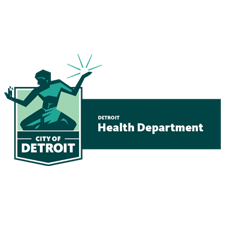
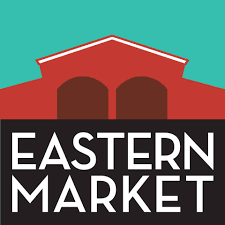
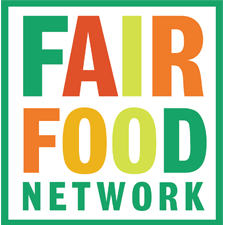


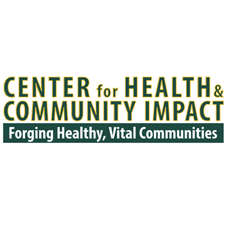
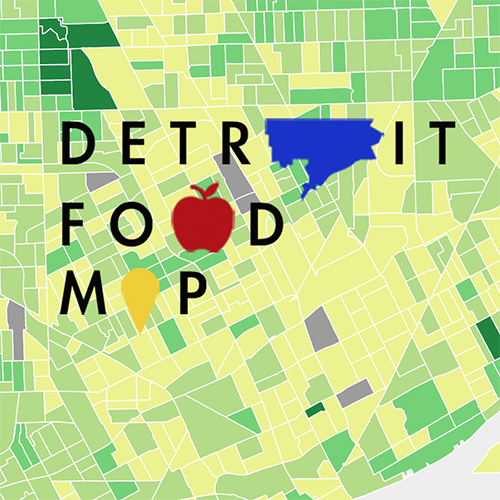
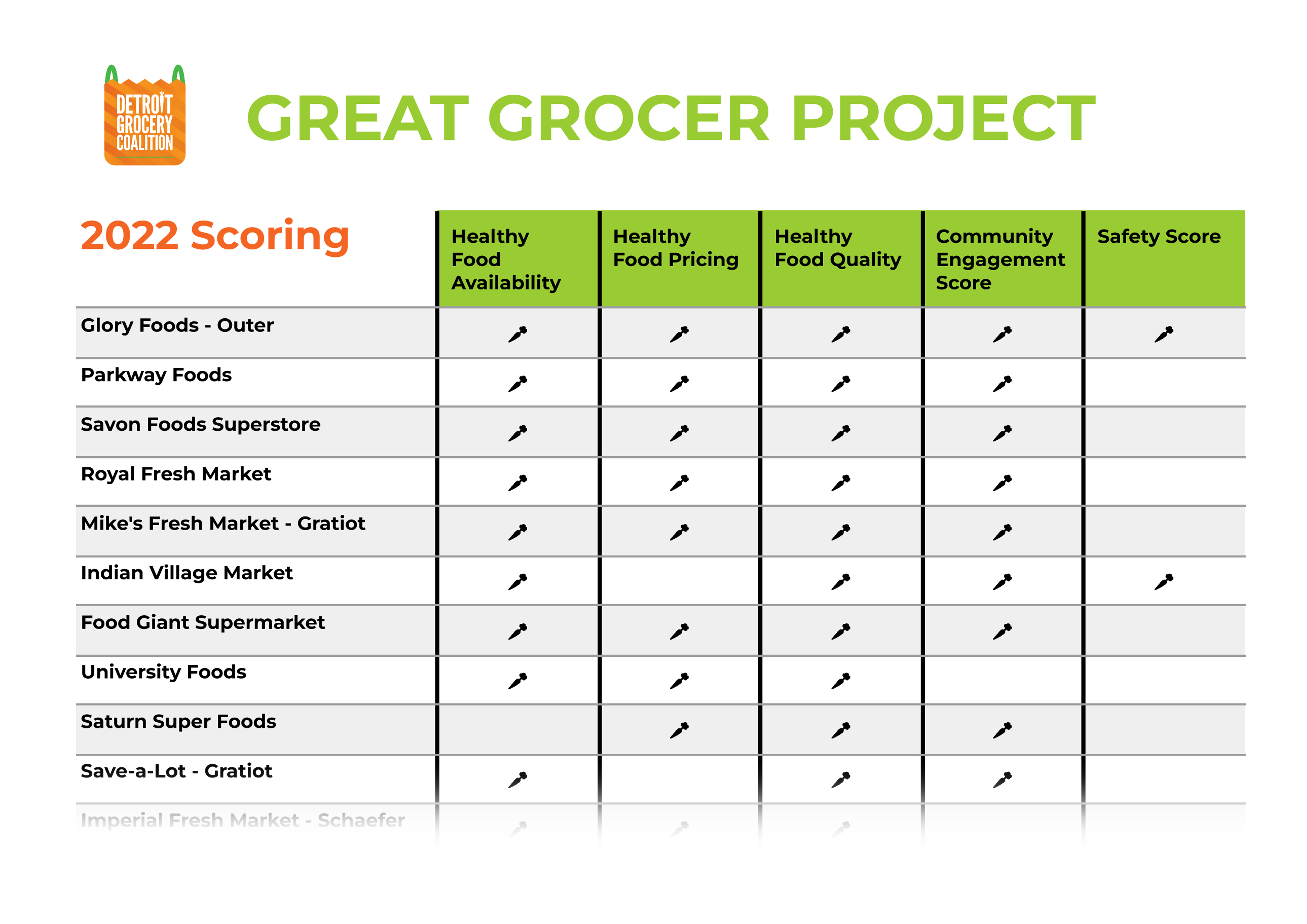
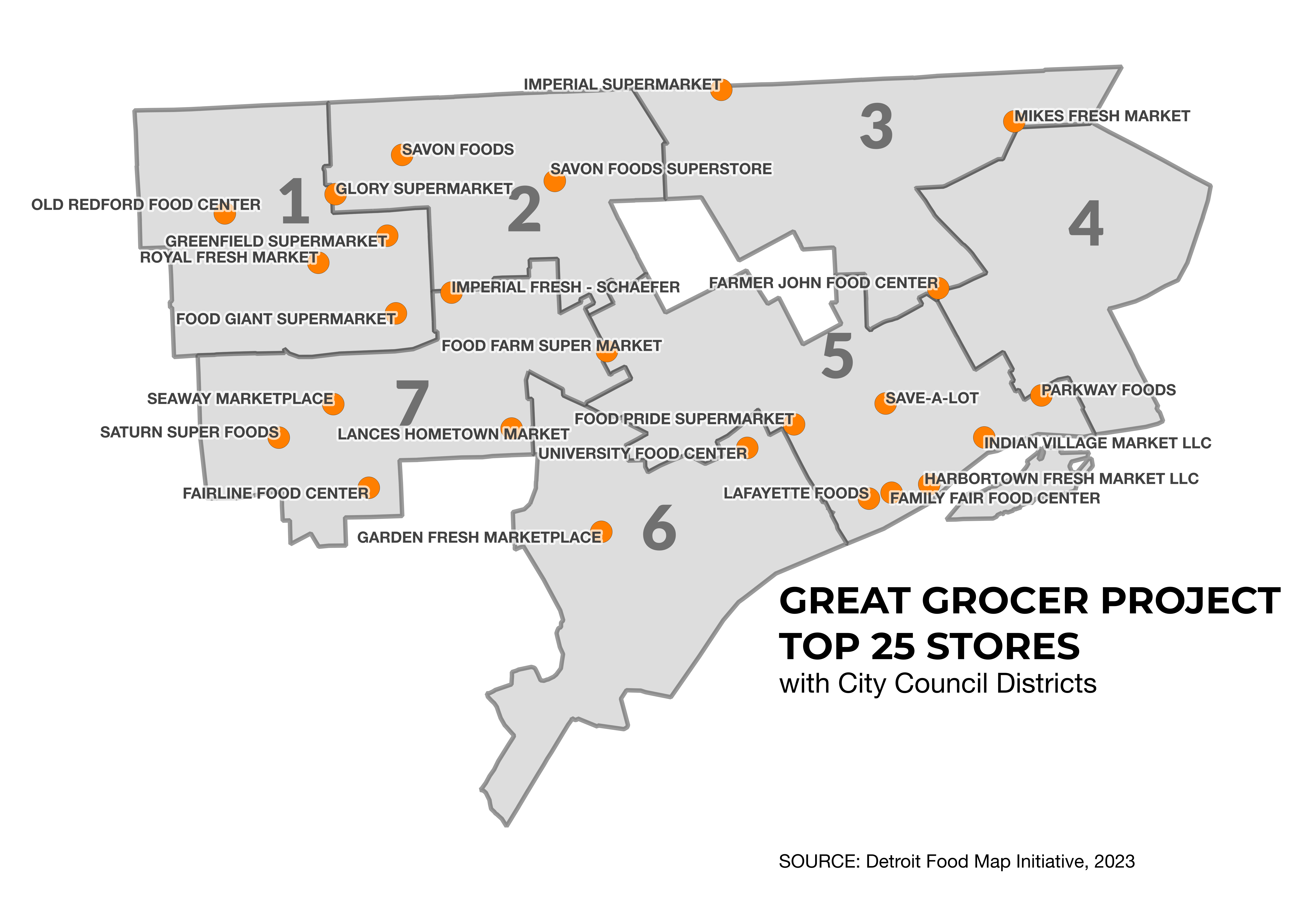
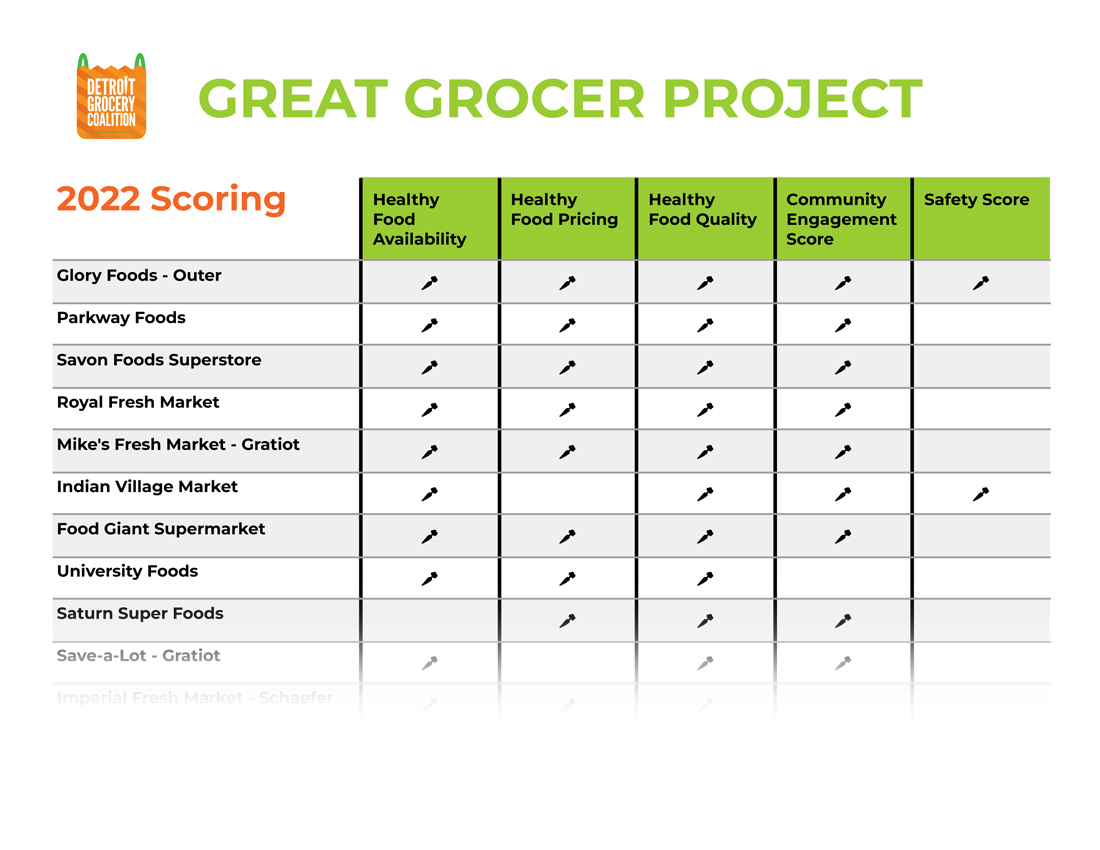
 Just Eat It
Just Eat It